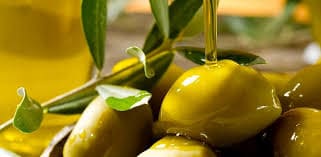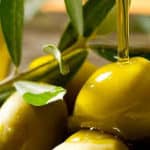Life Lessons from the Torah Portion
Parshat Tetzaveh Exodus 27:20-30:10
There has been an undying fantasy held to by all segments of humanity that there is some secret to a life overflowing with blessings and carefree existence. In the past many have turned to idols and superstition. Later science was a path that many were assured would simply “provide all the answers”. Later as the unmistakable hand Of G-d was becoming more and more visible in human history and destiny, many hoped that belief and obedience assured one of carefree living and unchallenged abundance. That too has become the new idolatry. It is clear that carefree living and unfettered blessing is not the purpose of creation
Insight into that realization is revealed in the Torah portion of Tetzaveh. The children of Israel are commanded to create the pure oil for the menorah.
“And you shall command the children of Israel, and they shall take to you pure olive oil, crushed for lighting, to kindle the lamps continually. In the Tent of Meeting, outside the dividing curtain that is in front of the testimony, Aaron and his sons shall set it up before Hashem from evening to morning; [it shall be] an everlasting statute for their generations, from the children of Israel(.Exodus 27:20-21)
There is something very critical about the oil and the lamp that Hashem calls them “an everlasting statute for their generations”
Furthermore we need to understand the words “pure olive oil, crushed for lighting” . Pure oil can only come from crushing , so what are we meant to learn from this seeming repetition?
When Hashem describes the faithful people of Israel he declares through the prophet Jeremiah the following metaphor;
Hashem called your name, “A green olive tree, beautiful in fruit and form”; (Jeremiah 11:16).
When King David speaks of his yearning to be a faithful servant of Hashem he writes
“But as for me, I am like a green olive tree in the house of God; I trust in the lovingkindness of God forever and ever.”(Psalm 52:8)
When Hashem describes his faithful that turn in repentance before Him he says through the prophet Hoshea the following;”, His branches shall spread; his beauty shall be like an olive tree, and his fragrance like Lebanon” (Hoshea 14:4-6).
Finally King David echoes the dream of every faithful parent with his prayerful psalm;
“Blessed is every one who fears Hashem, who walks in His ways. When you eat the labor of your hands, you shall be happy, and it shall be well with you. Your wife shall be like a fruitful vine in the very heart of your house, your children like olive plants all around your table. Behold, thus shall the man be blessed who fears Hashem” (Psalm 128:1-4).
What is it ,then , about the olive tree and the olives that elicits such powerful messages and metaphors.
The olive tree is one of the only fruit trees that does not lose its leaves in the winter.
That is to say that walking in emuna ( faithfulness) necessitates an awareness that G-d’s covering is constant. “Rabbi Yehoshuah Ben Levi said: Why is Israel compared to an olive tree? Because just as the leaves of an olive tree do not fall off either in summer or winter. So, too, the Jewish people shall not be cast off, neither in this world nor in the World to Come.”(Tractate Menachot 51b: )
Yet just as importantly, it is critical to remember that olives aren’t picked from the tree but rather the tree is hit with large sticks and the olives are then picked up from the ground. Then the olives need to be crushed in order to extract the pure oil.
Walking in faith necessitates an understanding that this walk will be filled with challenges and crushing experience. All this with the purpose of drawing out the purest potential in our lives
“Just as the purpose of the olive is the oil which is extracted from it, says Rabbi Yitzchak, so too is the purpose of the exile and all its events realized only after it reaches the end of its processing.” (Tractate Menachot 53b) The Maharsha explains that only after the olive has been crushed and pressed to extract its essence can the fruit’s potential truly be revealed.
Yet the promise is that no matter how long or arduous the voyage may be the olive oil will always rise to the top.(Midrash Shmot Rabbah Tetzaveh 36)
So then the Olive tree and its oil teaches us three critical lessons of faith.
The first is that just as the leaves do not fall in summer or winter, Hashem’s covering is always there.
The second is that a walk in faith will necessitate a “crushing”: and trials and challenges as a method of extracting the purest potential of our souls.
Finally despite all the mixing and the confusion the Pure Olive Oil will always rise to the top. That purity of thought and purpose is its destiny.
The lesson of the “pure olive oil, crushed for lighting” will be an “everlasting statute for their generations”
LeRefuat Yehudit bat Golda Yocheved

